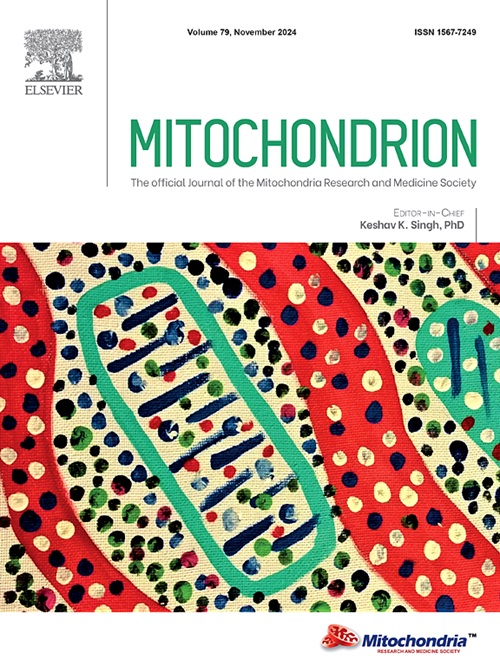PKM2是小鼠心脏脂质代谢的关键调节因子。
IF 4.5
3区 生物学
Q2 CELL BIOLOGY
引用次数: 0
摘要
脂质代谢不足会对心功能造成严重后果。我们之前的研究表明,通过丙酮酸激酶2 (PKM2)调节葡萄糖通量会影响心肌细胞的脂质合成和液滴丰度。本研究旨在探讨PKM2如何调节心脏的脂质代谢。间接量热法显示PKM2敲除(PKM2-/-)和对照(PKM2fl/fl)年轻小鼠(2-3 个月)的全身代谢相似,但表明与对照相比,老年(1岁)PKM2-/-小鼠的脂质利用率更高。代谢室研究还显示,PKM2-/-老年小鼠的整体负能量平衡导致运动耐受性降低。代谢组学显示PKM2-/-心肌细胞组分(CM)中肉碱水平显著降低,同时循环和心脏二羧酸增加,PKM2-/- CM中线粒体棕榈酸氧化减少。我们还注意到性别特异性差异,与PKM2fl/fl雌性相比,雌性PKM2-/-小鼠表现出更大的高脂肪饮食(HFD)诱导的高血糖和体重增加,而饲喂HFD的雄性PKM2-/-小鼠相对于PKM2fl/fl对照体更瘦。PKM2-/-小鼠的脂质代谢异常,随着年龄的增长而恶化,使全身代谢倾向于脂质利用。这可能导致老年PKM2-/-小鼠运动时有氧能力下降。由于肉碱缺乏,PKM2-/- CM也显示线粒体脂质代谢受损。具有HFD的挑战性PKM2-/-小鼠显示血糖控制和体重的性别依赖性差异。我们的研究结果表明PKM2在维持心脏和全身脂质代谢的稳态中起作用,有助于整体生理健康。本文章由计算机程序翻译,如有差异,请以英文原文为准。
PKM2 is a key regulator of cardiac lipid metabolism in mice
Deficiencies in lipid metabolism can have severe consequences for cardiac function. We previously showed that regulating glucose flux by pyruvate kinase 2 (PKM2) affects lipid synthesis and droplet abundance in cardiomyocytes. This study aims to examine how PKM2 regulates lipid metabolism in the heart.
Indirect calorimetry suggested similar whole-body metabolism of PKM2 knockout (PKM2-/-) and control (PKM2fl/fl) young mice (2–3 months), but indicated that lipids were utilized to a greater degree in aged (1-year) PKM2-/- mice compared to controls. Metabolic chamber studies also revealed an overall negative energy balance that contributed to reduced exercise tolerance in aged PKM2-/- mice. Metabolomics showed substantially lower carnitine levels in PKM2-/- cardiomyocyte fractions (CM), alongside increased circulating and cardiac dicarboxylic acids, as well as reduced mitochondrial palmitate oxidation in PKM2-/- CM. We also noted a sex-specific difference in which female PKM2-/- mice exhibited greater high-fat diet (HFD)-induced hyperglycemia and weight gain compared to PKM2fl/fl females, while male PKM2-/- mice fed a HFD were comparatively leaner than their PKM2fl/fl counterparts.
PKM2-/- mice have aberrations in lipid metabolism that worsen with age, shifting whole-body metabolism towards a preference for lipid utilization. This may lead to a decline in aerobic capacity during exercise in aged PKM2-/- mice. PKM2-/- CM also display compromised mitochondrial lipid metabolism due to carnitine deficiency. Challenging PKM2-/- mice with a HFD revealed sex-dependent differences in glycemic control and body weight. Our results indicate a role for PKM2 in sustaining the homeostasis of cardiac and whole-body lipid metabolism that contributes to overall physiological fitness.
求助全文
通过发布文献求助,成功后即可免费获取论文全文。
去求助
来源期刊

Mitochondrion
生物-细胞生物学
CiteScore
9.40
自引率
4.50%
发文量
86
审稿时长
13.6 weeks
期刊介绍:
Mitochondrion is a definitive, high profile, peer-reviewed international research journal. The scope of Mitochondrion is broad, reporting on basic science of mitochondria from all organisms and from basic research to pathology and clinical aspects of mitochondrial diseases. The journal welcomes original contributions from investigators working in diverse sub-disciplines such as evolution, biophysics, biochemistry, molecular and cell biology, genetics, pharmacology, toxicology, forensic science, programmed cell death, aging, cancer and clinical features of mitochondrial diseases.
 求助内容:
求助内容: 应助结果提醒方式:
应助结果提醒方式:


